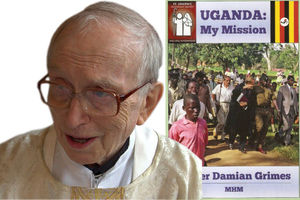Prime
Disregard of Constitution is to blame for Uganda’s instability

The preamble to the 1995 Constitution states that the people of Uganda “recalling our history characterised by political and constitutional instability…. solemnly adopt, enact and give to ourselves and our posterity, this constitution of the Republic of Uganda….”
The purpose of a preamble is to state the reasons for the Constitution and its general purpose. The preamble cannot control the enacting parts of the Constitution in cases where the enacting parts are expressed in clear and unambiguous terms, but in case of any doubt, resort to it can be made to explain the intention of the framers of the Constitution.
Article 259 of the Constitution, which gives power to Members of Parliament to amend the Constitution, is unclear as to how far this power can go.
For example, can the words “addition, variation or repeal” as used in the Article be interpreted so as to include “extension”?
What is the import of the provision of Article 259(1), which provides that Parliament’s power to amend is “subject to the provisions of the Constitutions” when read in conjunction with Article 1(1), which provides “…all authority in the State emanates from the people of Uganda; and the people shall be governed through their will and consent?
Such questions and others can only be answered by reference to the preamble.
The preamble makes it quite clear that the Constitution belongs to the people who exercised their inalienable right to determine the form of governance for their country.
Pronouncements by some leaders of the ruling party during the recent debates seemed to suggest that they derived the power to amend the Constitution from their majority in Parliament.
This disregard of the sanctity of our national Constitution is responsible for our country’s instability since independence. When Dr Milton Obote faced challenges within his ruling party, he solved them by suspending the national Constitution. Later he replaced the 1962 Constitution by his one-man Constitution of 1967.
In 1971 when Idi Amin faced his own personal challenges with Obote, he suspended the 1967 Constitution and made himself president and so on with the instability each phase brought with it.
According to the Constituent Assembly records of proceedings, most delegates wrongly attributed our past instability to Buganda’s special status, religious discrimination, UPC/KY alliance, federo and the like.
But none of these claims could have accounted for Obote’s arrest of ministers from his own party or inspired Amin to carry out a coup. Since we did not develop the ethic of constitutionalism, the army and not the Constitution became the highest law of the land.
By constitutionalism is meant a concept under which officials who exercise governmental powers are subjected to limitations of a higher law, the Constitution. Constitutionalism proclaims the desirability of the rule of law as opposed to arbitrary judgment or mere fiat of public officials. It also checks on majoritarian tyranny.
The central element in the concept of constitutionalism is that government officials are not free to do anything they please in any manner they choose because they are bound to observe both the limitations on power and the processes set out in the supreme, constitutional law of the land. Recent experiences suggest we are light years away from this ideal.
In the United States, constitutionalism has been defined as a complex of ideas, attitudes and patterns elaborating the principle that the authority of government derives from the people and is limited by a body of fundamental law.
These ideas, attitudes and patterns derive from a dynamic political and historical process. It is these ideas, attitudes and patterns which we are lacking in our body politic.
Mr Mulira is a lawyer.
[email protected]




